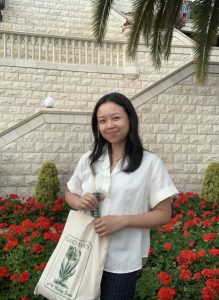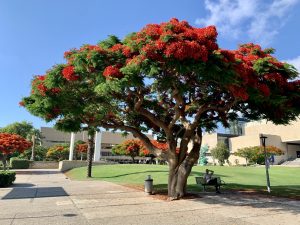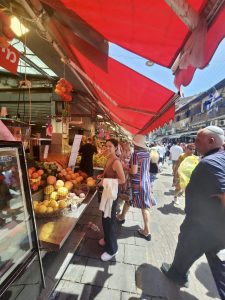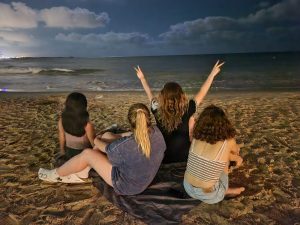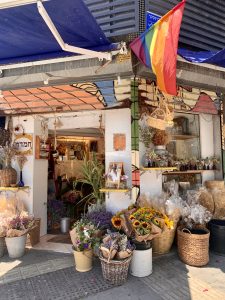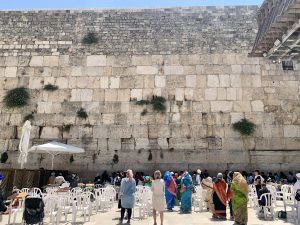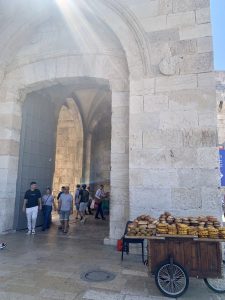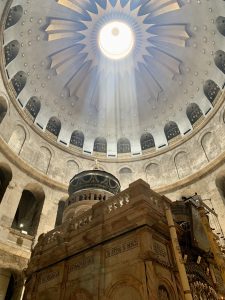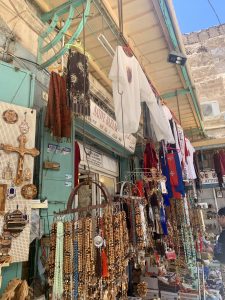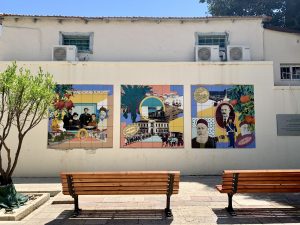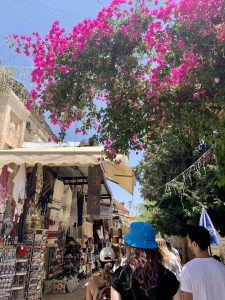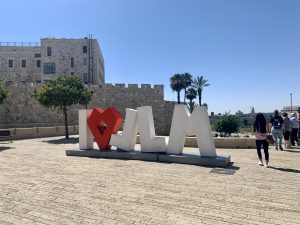Summer in Tel Aviv
A major goal of mine when first coming to UConn was to someday study abroad. I had no particular country in mind, but I knew that I enjoyed traveling and wanted to experience another culture in depth. When I learned about the Summer in Tel Aviv program that would not only give me a chance to take a UConn class for my major, Learning & Memory: From Brain to Behavior, but also a class at Tel Aviv University (TAU), I jumped at the opportunity to study with people from all around the world in a place that I knew very little about, besides what we hear in the news.
When arriving in Tel Aviv, I had a small sense of what the next four weeks of my life would look like—a jam-packed schedule that encapsulated the “work hard, play hard” mentality. Apart from the challenging academic aspect, however, I wasn’t quite sure what to expect and how to navigate the city itself. Luckily, the course I chose to take through TAU, City Lab: Experiencing Tel Aviv, consisted of walking tours in historically significant areas to better understand our surroundings and experience what the locals do. As we traversed the city and participated in class discussions, I learned more about my peers and what inspired them to come to Israel. Everyone had such fascinating and diverse stories, which prompted me to reflect on my own life experiences and motivations for visiting, which included both academic and religious reasons.
In addition to the City Lab course, the university arranged a number of events and excursions that allowed my peers and I to take full advantage of our time outside of the classroom. The most impactful side trip I went on with the group was to the Old City of Jerusalem. As a Catholic, I was aware of the meaning behind the city for Christians, though I never imagined that I myself would one day visit. I knew of its importance for both Judaism and Islam as well, but was unsure of how all three of these religions could possibly share the same space and coexist in harmony. While the city is broken into quarters, a lot of times I could not distinguish the boundaries between them until I looked closer at the vendors and saw the various religious items they had on display. There were also tourists of every faith and nationality walking through each quarter and appreciating all of the holy sites. This contributed to the sense of unity and cohesiveness that I personally felt throughout the city despite its set divides. Some may say that the differences between its inhabitants can be seen as the city's greatest source of strength. I certainly felt that way, and it was interesting to compare and contrast Jerusalem with the other cities I explored, including Tel Aviv.
My time in Israel was a whirlwind of sights and sounds, a blur of cities old and new with adventures around every corner. One of the best parts of studying abroad is that even when you are not reading a textbook or being taught in a classroom lecture, you are still constantly learning and becoming more knowledgeable about the world around you. Sure, the same can be true in everyday life, but being abroad really pushes you to absorb as much as you can about a place and its people in the limited amount of time you have there. It also promotes curiosity and community among people of different beliefs and backgrounds. Overall, the trip really solidified my love of traveling, and I truly value my time spent with those I met along the way.
